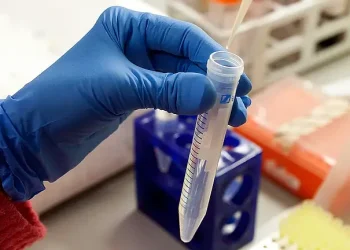The UK government has introduced new guidance to combat the rising threat of synthetic opioids, which have caused over 450 drug-related deaths in the past two years.
This initiative aims to enhance local authorities’ response capabilities by training police to administer naloxone, improving data sharing, and fast-tracking drug testing.
Addressing the Synthetic Opioid Crisis
The increasing presence of synthetic opioids in the UK’s illegal drug market poses a significant threat, often being mixed with heroin and other substances.
This has led to a sharp rise in overdose deaths, necessitating new responsibilities for professionals in policing, healthcare, and local government.
Businesses in nightlife and hospitality may also face increased scrutiny due to potential drug-related incidents.
Life-Saving Measures
- Over 20,650 police officers now carry naloxone, administered more than 1,200 times since 2019.
- The law allows take-home naloxone without a prescription for easier access by at-risk individuals.
- Local authorities are advised to share data between coroners, police, and health services.
- A generic definition of nitazenes closes legal loopholes for synthetic opioids.
Effect on Communities
The rise of synthetic opioids means greater risks from even small amounts of illicit drugs for the general public. Families and friends of drug users may need to learn how to administer naloxone.
Access to life-saving medication is now easier; however, the threat of accidental overdose remains high. Real-life examples include police officers saving lives on the street and families keeping naloxone at home without a prescription.
Insights from Industry Leaders
Dame Diana Johnson emphasized the government’s commitment to keeping streets safe through this initiative.
Chief Constable Richard Lewis highlighted the importance of naloxone in reducing deaths. Michael Kill praised the initiative as a vital step forward in protecting communities from dangerous synthetic drugs.
Legal Updates and Future Challenges
A generic definition for nitazenes prevents criminals from tweaking drug formulas to evade prosecution. The UK must ensure consistent implementation across all regions while maintaining adequate supplies of naloxone.
Long-term consequences could include reduced overdose deaths but also evolving threats as criminals develop new synthetic drugs.
Additional Reading
In Conclusion
The UK government’s proactive measures against synthetic opioids aim to save lives by enhancing response capabilities across various sectors.
By expanding access to naloxone and closing legal loopholes, these efforts reflect a commitment to public safety amidst an evolving drug landscape that demands vigilance and adaptability.
Sources: UK Government, UK Parliament, Home Office, Department of Health and Social Care and The Rt Hon Dame Diana Johnson DBE MP.
Prepared by Ivan Alexander Golden, Founder of THX News™, an independent news organization delivering timely insights from global official sources. Combines AI-analyzed research with human-edited accuracy and context.









